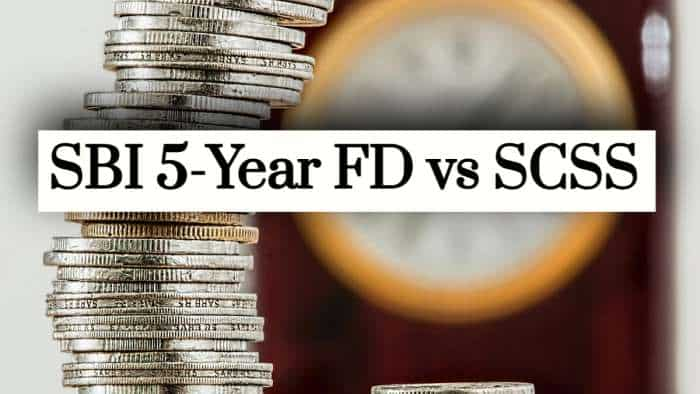SBI customer? BEWARE! 'Won a free gift from a bank'? WARNING! DON'T FALL into trap of phishing attacks - check all details here
Want to win a FREE GIFT from the National Bank of India? Beware! This can lead to a loss of one's personal and confidential information. The State Bank of India (SBI) has warned its customers against such phishing attacks. On can also get more information about the potential security threats by logging in to the website onlinesbi.com.

SBI Phishing Attack: Want to win a FREE GIFT from the National Bank of India? Beware! This can lead to a loss of one's personal and confidential information. The State Bank of India (SBI) has warned its customers against such phishing attacks. On can also get more information about the potential security threats by logging in to the website onlinesbi.com.
See Zee Business Live TV Streaming Below:
Recently, the SBI has tweeted from its official Twitter handle warning its customers of the phishing links that can lead to the loss of personal and confidential information for the customers. The tweet from SBI said, "Are you receiving these links in your inbox? Steer Clear! Clicking on these phishing links could lead to loss of your personal and confidential information. Stay alert. Think before you click!" The SBI tweet warned its customers from accepting links offering freebies.
Are you receiving these links in your inbox? Steer Clear! Clicking on these phishing links could lead to loss of your personal and confidential information. Stay alert. Think before you click!#ThinkBeforeYouClick #StayAlert #StaySafe #CyberSafety pic.twitter.com/URZcURvECl
— State Bank of India (@TheOfficialSBI) June 17, 2021
Phishing attacks use both social engineering and technical subterfuge to steal customers' personal identity data and financial account credentials. The SBI customers must be aware of the process by means of which the phishing attacks take place, they are as follows:
1) Internet banking user receives a fraudulent e-mail seemingly from a legitimate Internet address.
2) The email invites the user to click on a hyperlink provided in the mail.
3) User clicks the hyperlink and is redirected to a fake web site that looks similar to the genuine Internet banking site.
4) Usually the email will either promise a reward on compliance or warn of an impending penalty on non-compliance.
5) User is asked to provide confidential information, such as login/profile or transaction passwords and bank account numbers etc.
6) User provides the details in good faith and clicks on 'submit' button.
7) User is displayed an error page
8) User has fallen prey to a phishing attack.
One must not click on any link, which has come through e-mail from an unknown source. It may contain malicious code or could be a 'Phishing attack'. One must not provide any information on the page that has come up as a pop-up window. The bank customers must remember the fact that information like password, PIN, TIN, etc are strictly confidential and are not known even to employees/service personnel of the Bank. Therefore, one must never divulge such information even if asked for.
For more information, one can login to the SBI website at onlinesbi.com
Get Latest Business News, Stock Market Updates and Videos; Check your tax outgo through Income Tax Calculator and save money through our Personal Finance coverage. Check Business Breaking News Live on Zee Business Twitter and Facebook. Subscribe on YouTube.
05:26 PM IST














 India likely to enter top 3 globally in terms of voter participation in elections: SBI Report
India likely to enter top 3 globally in terms of voter participation in elections: SBI Report SBI writes to RBI to consider non-financial transactions as well for tagging an account as operative
SBI writes to RBI to consider non-financial transactions as well for tagging an account as operative SBI fundraise touches Rs 50,000 crore in FY25
SBI fundraise touches Rs 50,000 crore in FY25 SBI raises Rs 10,000 crore through infra bond issuance
SBI raises Rs 10,000 crore through infra bond issuance SBI hikes lending rates under MCLR by 0.05%
SBI hikes lending rates under MCLR by 0.05%